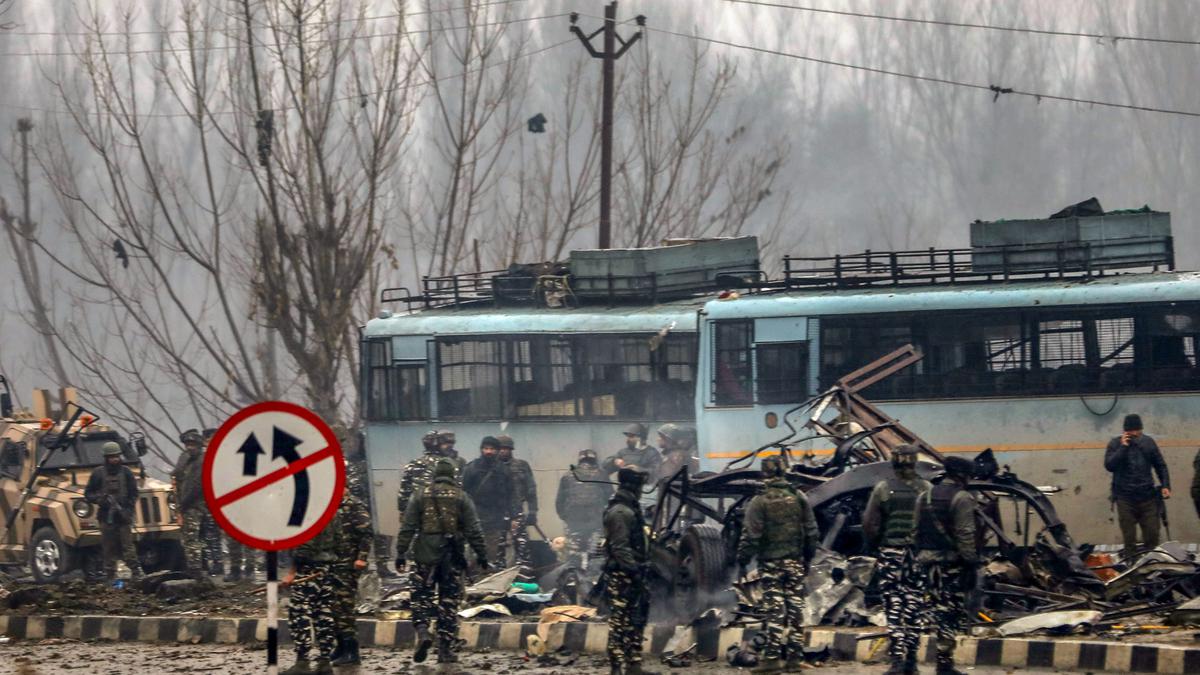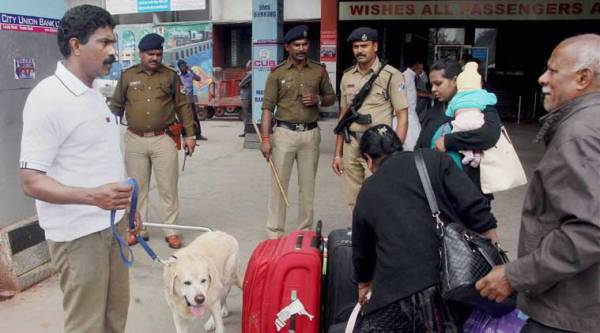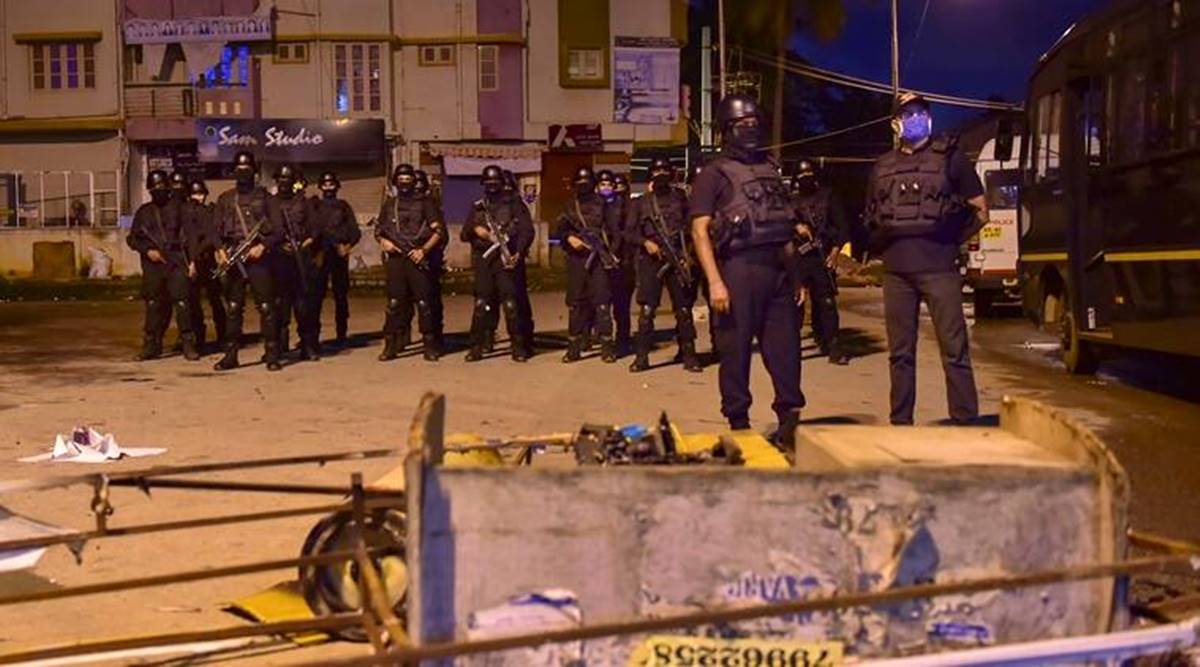5 Suspected Terrorists Arrested By Crime Branch For Planning Blast In Karnataka’s Bengaluru; Explosives Seized

5 Suspected Terrorists Arrested By Crime Branch For Planning Blast In Karnataka’s Bengaluru; Explosives Seized
The arrest of the five suspected terrorists by the Central Crime Branch (CCB) on Wednesday in Bengaluru marks a significant breakthrough in the ongoing fight against terrorism in the region. The authorities’ swift and decisive action has potentially foiled a dangerous plot that could have caused immense loss of life and property.
Syed Suhel, Umar, Janid, Mudasir, and Zahid, the individuals apprehended, are believed to be part of a well-organized terrorist cell operating within the city. The investigation into their activities likely revealed suspicious patterns, communications, or intel, leading the CCB to take pre-emptive action to prevent the planned devastating blast.

The authorities’ efforts to combat terrorism in Bengaluru have been commendable, as evidenced by their ability to track and neutralize this potential threat. Such successes rely on a combination of intelligence gathering, surveillance, and cooperation between various law enforcement agencies.
The potential consequences of such a planned terrorist attack would have been devastating not only for the victims and their families but also for the social fabric of the city. The loss of lives, destruction of property, and the spread of fear could have had lasting repercussions on the community.

The fact that these arrested individuals were already accused in a 2017 murder case is deeply concerning. It raises questions about the effectiveness of the criminal justice system in handling such individuals and preventing them from engaging in further criminal activities while in custody. There may be a need to review and strengthen security protocols within prisons to prevent radicalization and the formation of dangerous networks behind bars.
The successful seizure of explosive materials by the CCB further underscores the importance of intelligence-driven operations and the necessity of staying ahead of terrorists’ plans. The investigation into the origin and source of these materials could provide crucial leads in identifying their suppliers and sources of funding.

The cooperation between various security agencies, intelligence units, and the local community is vital in preventing terrorism. Citizen awareness and reporting of suspicious activities can play a significant role in thwarting potential attacks.
In the aftermath of these arrests, the authorities are likely to intensify their efforts to dismantle the entire terrorist network associated with these suspects. This will involve tracing their connections, financiers, and collaborators, both within the country and possibly internationally.
The public’s cooperation in providing information and remaining vigilant can greatly assist the security forces in their fight against terrorism. Additionally, it is essential to focus on deradicalization programs and measures to counter extremist ideologies that may be fueling these acts of violence.
Overall, the successful operation by the CCB serves as a reminder of the constant threat posed by terrorism and the need for sustained efforts to safeguard communities from such heinous acts. The vigilance, dedication, and professionalism of law enforcement agencies are critical in ensuring the safety and security of citizens.
What makes this case even more concerning is the fact that all five individuals were already accused in a previous murder case that occurred in 2017. Their criminal history and association with violence suggest a potential pattern of involvement in heinous activities.
The investigation revealed that while they were serving their sentences, the suspects were incarcerated at the Parappana Agrahara Central Jail. During their time there, they managed to establish connections with other terrorists, possibly leading to the formation of the current terror cell.
CCB’s prompt action led to the discovery and seizure of explosive materials. This confiscation is an essential development in preventing the planned attack and safeguarding the lives of countless innocent civilians in Bengaluru.
The authorities are likely to intensify their interrogation of the arrested individuals to gather critical information about the terror cell’s activities, potential accomplices, and any other ongoing threats. This intelligence could be crucial in preventing future attacks and dismantling other terrorist networks that may exist in the region.
Indeed, the recent incident involving the arrest of the suspected terrorists in Bengaluru highlights the critical importance of continuous vigilance and effective collaboration among security agencies in the fight against terrorism. The Central Crime Branch (CCB) and other law enforcement agencies have demonstrated their unwavering commitment to maintaining public safety and upholding justice.
The investigation into this terror cell is likely to be ongoing and complex. The authorities will meticulously piece together the suspects’ motives, connections, and plans to gain a comprehensive understanding of the threat they posed. This process involves a combination of intelligence gathering, forensic analysis, and thorough questioning of the arrested individuals.
Understanding the suspects’ motives is crucial to comprehend what may have driven them towards extremism and violence. This insight can shed light on the factors that lead individuals to be radicalized and may help authorities develop strategies to prevent similar occurrences in the future.
The investigation will also focus on establishing connections between the arrested suspects and other potential members of the terror cell. This could lead to the identification of accomplices, handlers, and financiers involved in supporting the group’s activities. Disrupting the entire network is essential in neutralizing the threat and preventing further attacks.
Additionally, the authorities will be keen on unraveling the scope and severity of the planned attack. This includes identifying the potential targets, the scale of the destruction they intended to cause, and the methods they planned to employ. Such information will help assess the level of risk posed by this particular group and inform security measures to prevent similar attacks in the future.
Transparency and information sharing with the public will play a vital role in keeping the community informed and involved in the process. While sensitive details may be withheld to safeguard ongoing operations, providing updates on the investigation’s progress can build public trust and cooperation.
The incident will likely prompt a review of existing security measures and protocols to identify any potential gaps or weaknesses that need to be addressed. Authorities may consider revising security procedures in places like correctional facilities to prevent inmates from being radicalized or forming connections with terrorists while serving their sentences.
In the broader context, the incident may also encourage the government and security agencies to enhance their efforts in countering terrorism through deradicalization programs, community engagement, and initiatives aimed at promoting understanding and tolerance.
Overall, the investigation of this terror cell is a critical step in safeguarding public safety and maintaining peace in the region. The diligence and perseverance demonstrated by the CCB and other law enforcement agencies in this case will likely serve as a strong deterrent to potential terrorists and a reminder of the collective determination to protect society from extremist threats.




